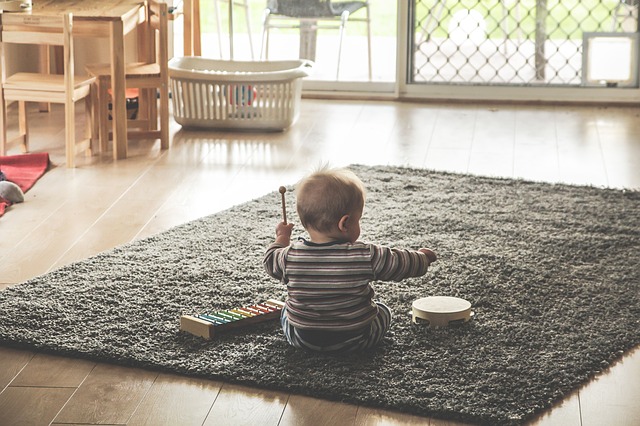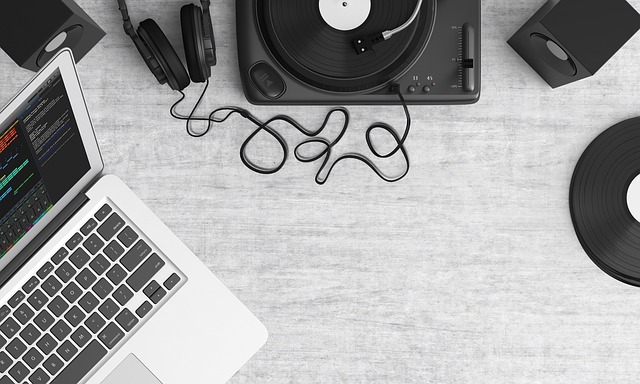
Elton John is quoted as saying, “Music has healing power. It can take people out of themselves for a few hours.”
You’ve probably experienced how music can calm you down, bring back a treasured memory, or pump you up. What you may not realize is that it can also improve your health and well-being daily.
Scientists have been looking into how music affects the brain and body, and they’ve discovered some fascinating things. Based on that research, below are 10 ways you can use music to improve your life.
1. Music Boosts Mood
Ways to Use Music to Boost Your Health: Ways to Use Music to Boost Your Health: If you’re having a bad day or need to pump yourself up, turn on your favorite upbeat tunes. In a 2016 study, researchers examined how listening to music affected older adults suffering from cognitive decline and found that it boosted mood and well-being. It was also comparable to meditation in helping to improve mood and sleep quality.
Use it: The best way to enjoy the mood-boosting benefits of music is to make sure you’re listening without distraction. Listening while exercising is a good idea but listening while scrolling your news or social media feeds is probably not. The brain will vacillate between the two types of incoming information, lessening the positive effects.
2. Music Eases Stress
Ways to Use Music to Boost Your Health:: Mays to Use Music to Boost Your Health: Several studies show that music can ease stress. It has a unique link to our emotions and can create a relaxing effect on our minds and bodies.
In a 2013 study, researchers found that listening to music impacted the body’s stress system. Participants who listened to music before surgery had lower levels of the stress hormone cortisol in their systems and recovered faster from the surgery than those who didn’t listen to music.
In another study, participants listened to different types of music while trying to solve stressful puzzles. Relaxing and calming songs helped reduce overall stress and anxiety by up to 65 percent and even reduced heart rate, blood pressure and rate of breathing.
Use it: Be selective in the type of music you listen to when you need to relax. Moreover, avoid high-tempo pieces and choose those that produce a calming effect.
3. Music Helps Relieve Pain
Ways to Use Music to Boost Your Health: We’re currently facing an opioid epidemic, fueled in part by an overreliance on opioid pain relievers. Doctors are now looking for other pain-relieving options, and music is one of them.
In a study of people with fibromyalgia, researchers found that patients experienced less chronic pain after listening to their favorite music. Scientists think that music can trigger the release of our natural opioids in the brain, which works as our own private pain relievers. Music also helps us direct our attention away from the pain.
Other studies have found that long-term use of music to relieve pain could improve quality of life while reducing reliance on pain relievers.
Use it: Moreover, the best way to gain pain relief from music is to listen to your absolute favorites. These will flood your system with more natural pain relievers than if you listen to music you enjoy only moderately.
4. Music Helps Relieve Depression
Ways to Use Music to Boost Your Health: Moreover, studies have found that patients suffering from depression can gain better results from their medications if they combine them with music. In one study, researchers examined data on more than 400 people and found that patients felt less depressed when music was added to their treatment regimens. It also helped ease anxiety and improve functioning.
In a 2014 review, researchers looked at 28 studies involving more than 1,800 people and found that music created a significant reduction in depression levels over time. They also discovered that, although the effects were present whether the participants listened to music or participated in group therapy sessions where they helped make music ― singing, playing and improvising with instruments ― there were slightly better results in the group sessions.
Use it: Moreover, join a music group of some kind or get some of your friends together to sing songs or play instruments. It doesn’t matter how good or skilled you are. The point is to have fun.
5. Music Can Help You Sleep
Moreover, many of us are struggling to get the recommended seven to eight hours of sleep per night. Music can help. Studies have found that listening to tunes with a slower tempo before bed can help people fall asleep faster.
People who listened to 45 minutes of relaxing music before bed for three weeks noticed a positive effect on sleep quality, duration, and ease. The effects were so compelling that researchers from the Sleep and Cognition Laboratory at the University of Lincoln and Goldsmiths, University of London, initiated music and sleep survey.
The first phase of that survey showed that people favored the following composers and artists when listening before bed:
- Johann Sebastian Bach
- Ed Sheeran
- Wolfgang Amadeus Mozart
- Brian Eno
- Coldplay
In addition to these artists, there was a wide variety of genres and artists named. People also reported that music helped them block out other noises and provided a sense of companionship and security.
Use it: Moreover, look for music you like that has a tempo of 60 to 80 beats per minute, low-pitched tones, slow and stable rhythms and soothing melodies.
6. Music Boosts Brainpower
Ways to Use Music to Boost Your Health: If you want to improve your ability to focus, concentrate, create, produce, and remember, music can help. Researchers have discovered that listening boosts brain activity and helps you perform better at work.
According to a study conducted at the Stanford Cognitive and Systems Neuroscience Laboratory, music works on areas of the brain that control your attention span and memory retention. The scientists looked at the brain with an MRI while participants were listening and found that particularly during periods of silence between music movements, the brain’s attention peaked.
Other studies have shown the following:
- Learning to play an instrument boosts memory and can help reduce the risk of dementia in older age.
- Music can help block distractions, improving focus and productivity.
- Music increases your efficiency when performing repetitive tasks.
- Music can spark creativity.
- Music can improve memory in patients with dementia.
Use it: Moreover, try classical music for this one. Researchers from the University of Helsinki found that listening to classical music can alter gene functioning, leading to benefits like improved brain function. Another study found that participants performed better on an assigned task when listening to Mozart than when listening to dissonant music or no music at all.
7. Music May Boost the Immune System
Moreover, want to avoid the cold and flu this fall? Try listening to more music. Researchers from Wilkes University examined how music affects levels of Immunoglobulin A (IgA), which is an important immune cell involved in defending us from invading viruses and bacteria. Moreover, they measured levels of IgA in participants before and after listening to 30 minutes of a radio broadcast, tone click, soothing music or silence.
Results showed that those who listened to the soothing music had significantly higher levels of IgA than any of the other groups, showing that exposure to music may help boost the immune system.
Another study reported that when critically ill patients listened to Mozart’s piano sonatas, they experienced reduced levels of interleukin 6 — a protein linked with heart problems and diabetes.
Use it: Moreover, during cold and flu season, listen to 30 minutes a day of relaxing music to help ease stress and boost immune activity.
8. Music Helps You Get More Out of Your Exercise
You may already use music during your workouts, but if you’ve gotten out of the habit, here’s a reason to plug in the headphones again: music can help you work out harder.
For one study, researchers had participants listen to motivational music or no music while they walked on a treadmill until they were too tired to continue. Results showed that those who listened to music worked out longer than those who didn’t listen. They also said they felt better during their workout.
Other studies have found that faster-paced music can improve athletic performance, either by increasing distance traveled, pace or repetitions completed.
Use it: Moreover, some studies have found optimal tempos needed for different types of exercise. These tempos allow you to align your movements with the beat, increasing motivation and performance:
- For cycling: 125 to 140 beats per minute
- For the treadmill: 123 to 131 beats per minute
9. Music Helps You Better Manage Surgery
If you have to go through surgery soon, ask your doctor about incorporating music therapy into your recovery. Moreover, studies show that it can help patients to feel more comfortable and even heal faster.
Moreover, in a 2015 review of 73 studies, researchers compared standard care after surgery to care that included music therapy. Results showed that music not only reduced postoperative pain and the use of pain relievers, it also helped increase patient satisfaction.
Furthermore, other studies have shown similar results. In one experiment, scientists examined patients undergoing open-heart surgery and found that those listening to 30 minutes of music after surgery showed significant reductions in pain intensity.
In yet another study on older patients with cancer, music was found to have a positive effect on recovery after surgery. Moreover, pain and anxiety were reduced, and relaxation and cognitive functioning increased.
Use it: Moreover, ask your doctor about using music both before and after your surgery. Take your favorite music to the hospital with you.
10. Music Can Help in Your Weight-loss Goals
Moreover, music may be a helpful weight-loss tool. In one study, people who ate at low-lit restaurants with soft music playing consumed 18 percent less food than those who ate in other restaurants. Scientists believe that when people are more relaxed and comfortable, they eat more slowly and are more aware of when they feel full, which helps them eat less.
Use it: Play soothing music at home while eating. Relax and enjoy the experience.
For your guide to the best foods to heal your body, make sure to check out The Best Foods that Rapidly Slim & Heal in 7 Days, here!






